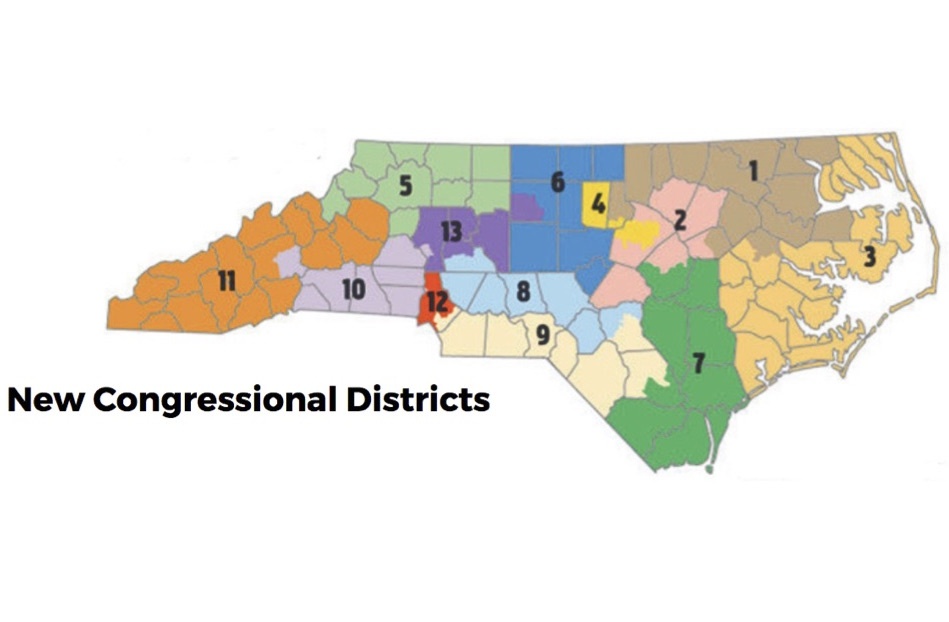INSTITUTE INDEX: N.C. special election shows the high cost of racial gerrymandering

Voting is underway in North Carolina's special primary election for congressional seats under this district plan, necessitated after federal courts ruled an earlier map was unconstitutionally racial gerrymandered. (Map from Democracy North Carolina.)
Date of North Carolina's special congressional primary election, scheduled after the federal courts ruled the district maps created by the Republican-controlled legislature were racially gerrymandered and had to be redrawn: 6/7/2016
Cost of the additional election, for which early voting ends June 4, and where a state Supreme Court seat will also be on the ballot due to the court's rejection of a legislative attempt to protect its conservative majority: $9.5 million
Number of new teachers that could have been hired with that money: 270
Number of new textbooks that money could have purchased for the state's students: 300,000
Percent turnout for the regular primary North Carolina held in March: 35
Percent turnout predicted for the special primary election: 4 to 6
In the run-up to the regular primary election that was held March 15, number of early voting sites offered by Wake County, home to the state capital of Raleigh: 9
Number of such sites Wake County is offering in the run-up to the special election: 3
Number of candidates running in North Carolina's new 13th Congressional District, where there is no incumbent: 22
Number of those candidates who are Republicans: 17
Under new rules adopted by the legislature that do away with runoffs and allow congressional races to be won with a plurality of votes, estimated number of votes that could be enough to win the congressional primary in the GOP-leaning 13th District: 5,700
Year in which a bill was introduced in North Carolina's General Assembly to establish an independent redistricting commission that would take drawing electoral district lines out of the legislature's hands: 2015
Number of sponsors from both parties the measure now has: 63
Number of states that have independent redistricting commissions: 13
Of those 13 states, number in the South: 1*
* Arkansas.
(Click on figure to go to source. Research assistance by Rebekah Barber.)
Tags
Sue Sturgis
Sue is the editorial director of Facing South and the Institute for Southern Studies.
